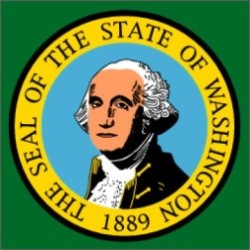Online Poker Bills Dead In Mississippi and Washington

Hopes that Mississippi and Washington would become the first US states to pass online gambling legislation this year have been dashed after the bills failed to even receive a hearing. Both bills introduced in 2015 failed to garner enough support and so have now been taken off the table, although they did serve to draw attention to the issue and hopefully create a level of momentum for the future.
Washington Players Will Have To Wait
Washington’s House Bill 1114 had been introduced in early January by State Representative Sherry Appleton (D-23rd, Poulsbo), but subsequently failed to receive a hearing in the country’s most anti-online gambling state where gambling online still carries a potential $10,000 fine and up to five years in prison. Following the disappointing news for Washington’s online gambling fans, Sherry Appleton said:
“The bill did not get the support that I had originally hoped for and consequently we will not be moving forward with it this session.”
Sherry Appleton initially undertook her online poker drive on behalf of Curtis Woodard and his grassroots lobbying group called the Washington Internet Poker Initiative, and despite its failure this week all indication show they will continue their drive in 2016. Striking a note of optimism for the future, Curtis Woodard tweeted: “It’s not the end, it’s just the beginning. We’ll be back!”
Mississippi iPoker Bill Dies In Committee
The chances of the ‘Mississippi Lawful Internet Gaming Act of 2015’ gaining traction in the ‘Magnolia State’ were pretty slim from the start, with the bill’s sponsor Representative Bobby Moak (D-Bogue Chitto) stating so when he introduced it to the legislature less than a month ago. Nevertheless, Moak went ahead and filed the bill anyway in an effort to keep dialogue open on the online gambling issue, and he will now be hoping keeping the topic open will help his online poker bill gain momentum in 2016.
Moak’s latest disappointment, however, represents the third time in four years the Mississippi State Representative has failed to gather sufficient support to advance his online gambling legislation, despite the bill being designed to offer consumer protection from unregulated offshore operators, as well as generate extra revenues for the state. The bill would also have opened a path for Mississippi to form Multi-State Internet Gaming Agreement with other markets, but as Moak told PokerNews this week:
“My republican colleagues have not been moving very much at all concerning gaming. They haven’t looked at doing any of the incentives that some other businesses get, and we’ve got to create some opportunities to help the bottom lines for gaming houses.
Mississippi Bill Also Controversial
In addition to a lack of interest from his fellow lawmakers on the issue of iGaming, Moak’s bill is likely to have suffered further from a number of controversial provisions included in his piece of legislation, most notable of which was a potential fine of $10,000 and even 90 days behind bars for any gambler found playing on an unauthorized sites. These provisions even compelled the Poker Players Alliance to speak out against aspects of Moak’s bill, with PPA Vice President of Player Relations Rich Muny, explaining:
“I think all player penalties are misguided. Players penalties wrongly shift the target of enforcement efforts from hard-to-reach offshore sites to the players.”
Nevertheless, Moak has insisted his bill still remains open to input from legislators, operators, and players, alike, and that all such groups would have a say as to what the final product would eventually look like.
Will Any States Pass iGambling legislation In 2015?
With both Washington and Mississippi dismissing online gambling bills this year, and Representative Jason Chaffetz reintroducing the Restoration of America’s Wire Act (RAWA) to Congress this past week, the number of other states possibly introducing online poker legislation of their own in 2015 has shortened drastically.
Now, California seems the only state left that could potentially go online in 2015, with two bills currently undergoing consideration, namely Assemblyman Mike Gatto’s AB 9, and Assemblyman Reginald Jones-Sawyer’s AB 167. However, these bills still face formidable opposition from California’s disparate group of gaming interests, which include native tribes, casinos, cardrooms, and racetracks. In fact, estimates for the Golden State adopting legislation in 2015 only stand at around 10% so far, indicating Nevada, Delaware, and New Jersey may stay the USA’s only online gambling state for yet another year.










